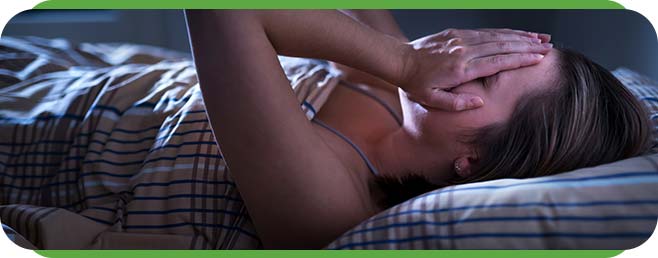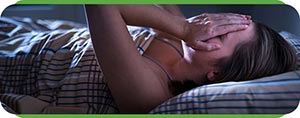What Triggers Restless Leg Syndrome While Sleeping?
If you have restless leg syndrome and it is affecting your sleep, visit Koala® Center For Sleep & TMJ Disorders. For more information, call us or visit us online to book an appointment. We have convenient locations across the U.S. in Bloomington IL, Peoria/Dunlap IL, El Paso TX and Wausau WI.




Table of Contents:
Can you have restless leg syndrome while sleeping?
How do I stop restless legs while sleeping?
What is the best position to sleep with restless leg syndrome?
What is the best medication for restless legs syndrome?
Restless legs syndrome (RLS), a type of dyskinesia, is a medical disorder of the nervous system causing an unpleasant sensation in the legs that may lead to uncontrollable movements, especially at night, which can interfere with quality of sleep. RLS typically occurs when the person is at rest, such as watching TV or reading a book, and is most commonly associated with sleeping difficulties, making it hard to fall asleep. Much research has been conducted into restless legs syndrome, which has provided a great deal of insight into its potential causes and treatments.
While restless legs syndrome is most often associated—and most frequently occurs—when trying to fall asleep, some people experience sudden leg jerk movements while they are asleep, which can actually cause them to wake up. This is different from parasomnia, or exaggerated movements such as acting out one’s dreams during sleep; certain things can trigger restless legs, and if severe enough, can occur while sleeping and disrupt a person’s sleep.
While there are a number of things people can do to prevent restless legs syndrome or reduce its severity, these normally involve changes to day-to-day routine, so when symptoms arise in bed, it can be frustrating. Fortunately, there are certain actions people can take to relieve RLS symptoms as they appear, so they can get back to sleep more quickly. These include:
– Meditation and Mindfulness — The mind is incredibly powerful; there is much truth in the old aphorism “mind over matter”. Meditation, especially when combined with progressive muscle relaxation techniques—which involve focusing attention to different areas of the body and gradually relaxing them one at a time—have been proven to be highly effective for quick relief of RLS symptoms.
– Compression Socks — Another quick option for effective relief from RLS symptoms is compression socks. These can either be worn before bed prophylactically, or kept close by to be worn when the need arises.
– Hot Pack — Applying a hot pack to restless legs can help to quickly diminish symptoms; taking a quick shower can also achieve the same caliber of results.
– Get Out of Bed — If all else fails, sometimes the best thing to do is get out of bed and walk around; exercise can exhaust the leg muscles and reduce restless legs.
Even with all of the research on restless legs syndrome, there is no single answer as to what the best sleeping position is for someone living with the condition. In most cases, it seems to be one of personal preference; a position that is comfortable, conducive to good posture, and will cause no excess strain on the musculoskeletal system. Certain sleeping positions may exacerbate RLS symptoms, so finding the best one may require some trial and error. Furthermore, some people with RLS have reported that flexing their leg muscles—tensing their calves and quadriceps—for several seconds, then slowly relaxing these muscles over the next 30 seconds can provide effective relief when symptoms flare up. The likely reason this works has to do with re-training the nervous system and helping it to release passive tension.
Medications and restless legs syndrome typically do not mix well; several medications—both prescription and over-the-counter—are linked to RLS, including worsening symptoms and increasing the frequency of episodes. Common medications that can cause or worsen RLS include antihistamines, antidepressants, some antipsychotics, and lithium (used in the treatment of bipolar disorder).
On the contrary, certain supplements, such as iron and dopamine, may be prescribed to treat RLS; the condition is linked to low levels of iron in the brain, as well as a dopamine deficiency.
The sleep team at Koala® Center For Sleep & TMJ Disorders are dedicated to providing you with effective relief for your restless legs syndrome. Call us today to book an appointment with our sleep specialists, or visit one of our locations: we serve patients from all across the United States.

Additional Services You May Need
▸ KoalaKIDZzz®
▸ Sleep Apnea
▸ Snoring
▸ TMJ Disorder
▸ Fatigue
▸ Sleep Disorders
▸ Weight Loss
▸ CPAP Alternative
▸ Oral Appliances




